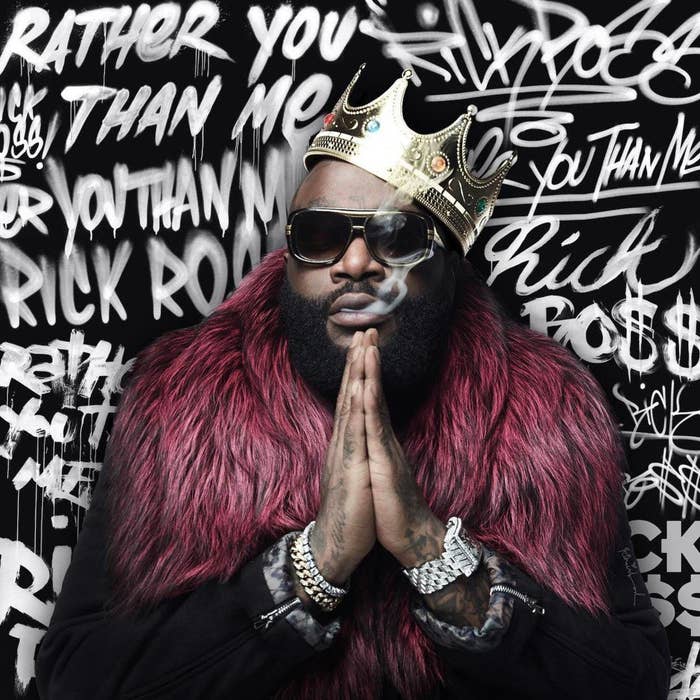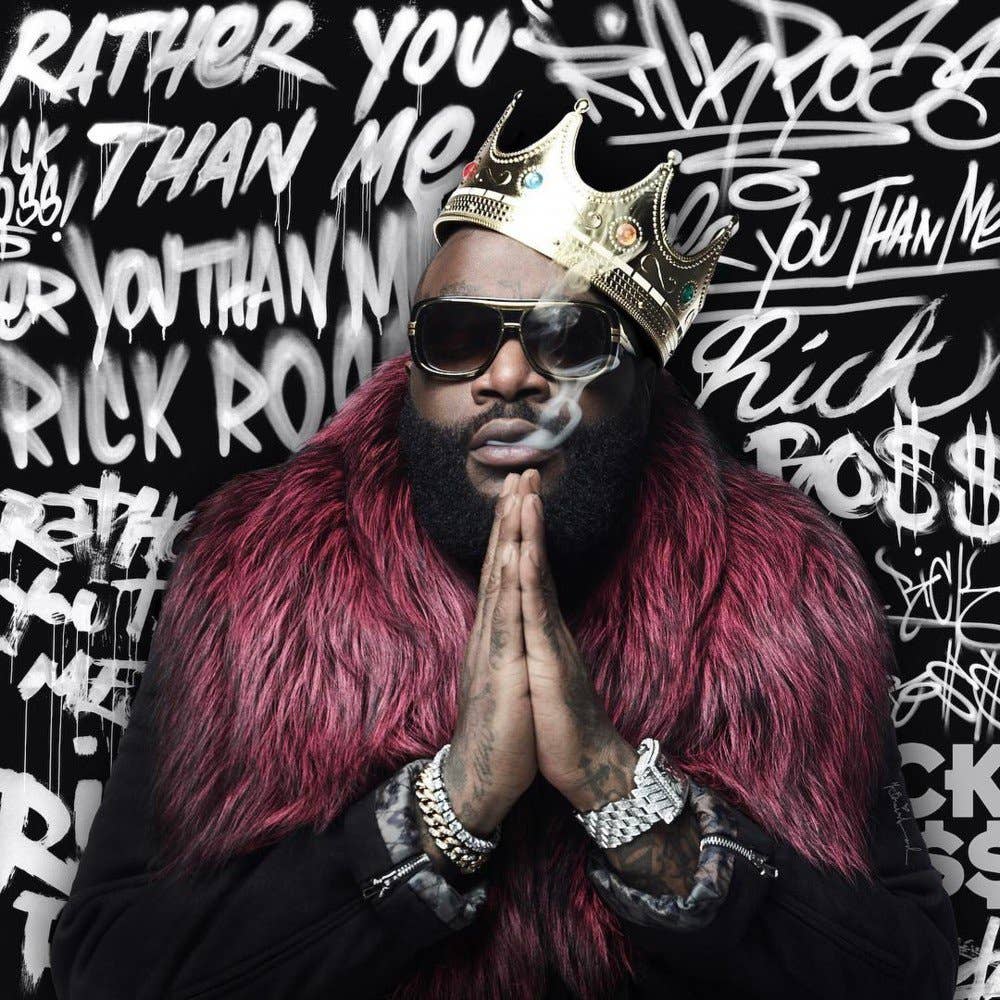
There are plenty of bright moments on Rick Ross’ strong new album Rather You Than Me: the Stylistics sample on “I Think She Like Me,” Nas’ flawless guest feature on “Powers That Be,” the song title “Santorini Greece.” But the track that has most fans talking goes deeper than rap.
“Idols Become Rivals” is a five-minute open letter to Birdman. On the track, Ross accuses the Cash Money Records co-founder of rocking fake wristwear, snorting coke, and, most notably, jerking his artists out of their publishing money. Baby’s questionable business dealings have been widely reported over the years, but Rozay paints the shadiness in a truly ghastly light, comparing the iconic record label to the Catholic Church’s notorious sexual abuse scandal—Baby is the violating priest and disgruntled icons like Mannie Fresh and Lil Wayne are the victims:
Catholic record labels, niggas gettin raped, boy
Birdman's a priest, moans in his synagogue
Publishin is a sin, repent, forgive me, Lord
It’s a potentially noble cause for Rick Ross to take up on his stellar ninth solo LP. Not only is he friends with Wayne and former Cash Money act DJ Khaled (who he also sticks up for here), but Ross is also a label head himself. Perhaps his public rebuke of former ally and hero Birdman’s lack of ethics is a calculated gesture to cement his own legacy as one of music’s biggest bosses.
With more than a decade in the rap game, Rick Ross is now a legitimate elder statesman of the genre. He’s been heading his own Maybach Music Group since 2009 and scored a lucrative deal with Warner Bros. in 2011, adding burgeoning stars like Wale and French Montana to his ranks. While the record label logos printed on the CDs have changed over the years, MMG remains one of the most reliable brands in hip-hop, much in part due to Renzel’s ear for good music and promising talent. He’s twice defused infighting between Wale and Meek Mill, and has kept a spotless rep as an executive. At 41 years old, Ross may be looking to a future where he can swap recording booths for boardrooms, as Jay Z has done so gracefully in the latest act of his career.
Ross first clipped Birdman in 2015 on Black Market’s “Color Money,” a song that provided futile backup to Meek Mill in his beef with Drake (“I got more money than that pussy that you’re signed to,” Rozay barks). He revealed the song’s motivation in an interview with The Breakfast Club, alluding to Lil Wayne’s longstanding legal fight to leave his Cash Money contract. “Seeing what Wayne going through as an artist, me idolizing Birdman at a time, me looking up to Lil Wayne, Wayne being the first artist making to make so many feats not just as an artist but an artist coming through the South, that's something I took personal,” Ross said. “For me to see the way things are transpiring, I can't respect that.”
He doubles down on those sentiments on “Idols Become Rivals,” rhyming:
I pray you find the kindness in your heart for Wayne
His entire life, he gave you what there was to gain
I watched this whole debacle so I'm part to blame
The frank pleas and almost regretful finger-wagging—along with the song’s Drake-inspired title—position Ross as an equal to one of hip-hop’s most influential, albeit infamous, execs. And his sense of ethics could go a long way. Last year Ross expressed interest in signing Lil Wayne, who has already publicly thanked his longtime collaborator for the shoutout on Rather You Than Me. “Idols Become Rivals” could be a “come to Death Row Records” moment for the streaming age.
Whether genuine, strategic, or both, “Idols Become Rivals” serves to position Rick Ross as one of hip-hop’s business bigwigs, and serves as a stark reminder of why you should never meet your idols.

